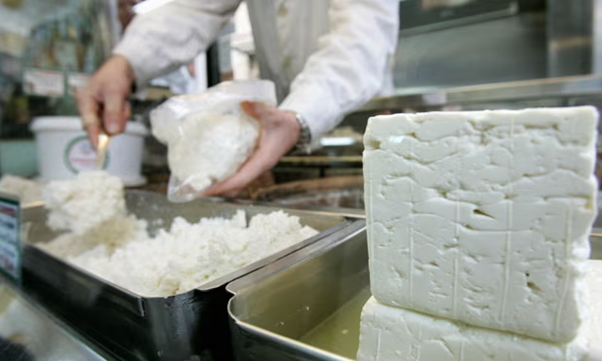Greek farmers have reassured that the production of feta cheese will remain stable despite the outbreak of a deadly virus among goats and sheep, which has resulted in the culling of thousands of animals.
Livestock industry leaders have dismissed concerns that the spread of the highly infectious disease, known as the "sheep and goat plague" or peste des petits ruminants (PPR), would significantly impact feta cheese production.
“Around 9,000 animals have had to be killed because of the outbreak but it won’t endanger feta exports,” stated Christos Tsopanos, a senior figure at the Association of Greek Livestock (SEK). He emphasised that Greece, with 14 million goats and sheep, has more livestock than any other EU state. "We have enough milk. Authorities have moved fast to deal with this situation."
Despite the culling, farmers are on track to produce 120,000 tonnes of feta cheese this year. The virus, first confirmed in Greece on July 11, has prompted the Ministry of Rural Development and Food to implement stringent measures, including nationwide restrictions on the movement of goats and sheep and a ban on their commercial slaughter to prevent meat shortages.
More than 200,000 animals have been tested for the infection, primarily in the central Thessaly region, which recently faced severe flooding from a deadly storm last September. Agriculture Minister Kostas Tsiaras has underscored the necessity of tight security measures to prevent the spread and eradicate the disease.
Greek officials have reassured the public that PPR does not affect humans. “Consumers must understand that only animals are affected by this disease,” said SEK’s vice-president, Dimitris Moskos. He suggested the virus likely entered Greece from Romanian herds destined for slaughter.
First recorded in 1942 in Ivory Coast, PPR has since spread globally. The UN’s Food and Agriculture Organisation estimates that the disease causes losses worth up to $2.1 billion annually.
Read more: Goat plague

